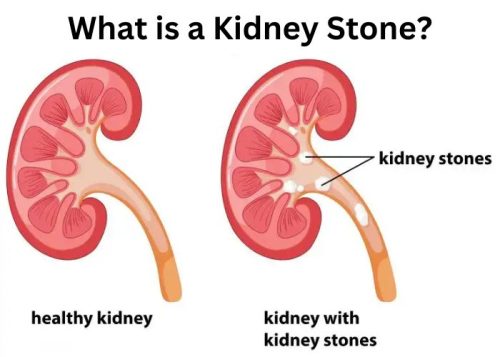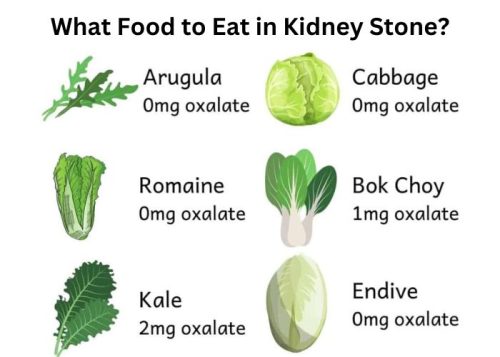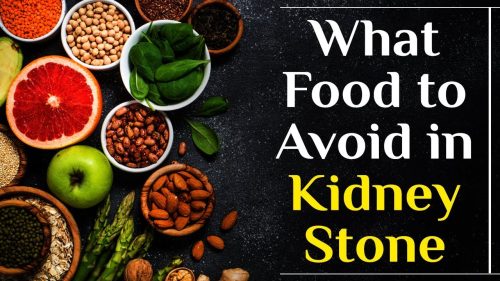
Kidney Stone Diet: Food to Eat and Avoid
Kidney stones are a prevalent medical condition that can lead to excruciating pain and discomfort. The hard deposits of minerals and salts develop in the kidneys and may affect the urinary system. Having an ideal kidney stone diet is necessary for prevention, and a proper diet is also important for management. A proper diet reduces the risk of developing stones by regulating the intake of minerals and ensuring proper hydration. In this guide, we will discuss what a kidney stone is, the optimal foods to incorporate into a kidney stone diet, foods to steer clear of, and the place of homeopathy treatment for kidney stone ineffective management.
What is a Kidney Stone?
A kidney stone is a solid mass that develops as the result of a buildup of specific minerals in the urine. The stones come in all sizes and can be extremely painful when they move through the urinary tract. The most common kidney stones are:
Calcium Stones: Most frequent, consisting primarily of calcium oxalate or calcium phosphate.
Uric Acid Stones: Resulted from a condition of excess uric acid within the urine and are commonly found in association with a high protein diet.
Struvite Stones: Most likely the result of urinary tract infection (UTI).
Cystine Stones: A less common type caused by a genetic syndrome that causes extra cystine to be in the urine.

What Food to Eat in Kidney Stone?
A balanced diet is necessary for preventing and treating kidney stones. Some foods regulate mineral absorption, minimize oxalate accumulation, and ensure normal urine pH, thus inhibiting stone formation. A diet for kidney stones should emphasize proper hydration, calcium-containing foods, low-oxalate greens, and plant proteins. Proper dietary intake can lower the risk of kidney stones and maintain overall kidney health.
Hydrating Fluids
Being well-hydrated is the best prevention for kidney stones. Drinking fluids dilute urine and prevent excess minerals from crystallizing into stones.
- Drink 8 to 10 glasses of water daily.
- Lemon water has citrate, which prevents calcium stone formation.
- Coconut water supports electrolyte balance and kidney health.
- Herbal teas such as dandelion and nettle tea support kidney function and cleansing.
Calcium-Rich Foods
Most individuals have the misconception that lowering calcium levels will help deter kidney stones when, in fact, sufficient amounts of calcium form a bond with oxalates in the intestinal tract and thereby inhibit their passing into the kidneys.
- Low-fat milk, low-fat yogurt, and low-fat cheese.
- Bok choy, kale, and broccoli are low-oxalate vegetables.
- Almonds, tofu, and sesame seeds are plant foods that contain calcium.
Low-Oxalate Vegetables
Some of the vegetables are rich in oxalates and can lead to stone development, but some of them are low in oxalates and are safe to eat.
- Cabbage, cauliflower, cucumbers, and bell peppers.
- Carrots and pumpkins, are rich in vitamin A and are beneficial for kidney function.
- Zucchini, green beans, and lettuce as safe and healthy choices.
Citrus Fruits
Citrus fruits contain a high content of natural citrate, which stops calcium stones from developing by decreasing mineral crystallization in urine.
- Oranges, lemons, and grapefruits.
- Fresh lime juice diluted with water.
- Whole citrus fruits rather than processed juices with added sugars.
Whole Grains
Whole grains are fiber-rich, and fiber aids in the regulation of calcium absorption and inhibits the excessive buildup of minerals in the kidneys.
- Brown rice and whole wheat bread.
- Oats, quinoa, and barley.
- Whole grain cereals and pasta.
Plant-Based Proteins
Excess animal protein raises uric acid levels, causing uric acid kidney stones. Substituting it with plant proteins is a better option.
- Lentils, beans, and chickpeas offer good protein without raising uric acid.
- Tofu and paneer are calcium-fortified protein alternatives.
- Seeds and nuts are in small amounts since part of them contain oxalates.
Magnesium-Rich Foods
Magnesium inhibits oxalate formation by reducing its absorption from the intestine.
- Bananas and avocados.
- Flaxseeds, pumpkin seeds, and sunflower seeds.
- Moderate amounts of dark chocolate.
A properly planned kidney stone diet with adequate fluid intake can prevent the formation of kidney stones and also enhance kidney function. Eating foods low in sodium, achieving normal weight, and using homeopathy treatment for kidney stones are other ways that support kidney function.

What Food to Avoid in Kidney Stones?
Treating kidney stones involves practicing mindful dietary habits. Some foods can enhance the likelihood of stone development by increasing oxalate, calcium, or uric acid levels in urine. The kidney stone diet must emphasize limiting foods rich in sodium, oxalates, animal proteins, and refined sugars. Avoiding these factors can decrease the risk of developing kidney stones and maintain better kidney health.
High-Oxalate Foods
Oxalates combine with calcium in urine to form crystals that grow into kidney stones. Limiting high-oxalate foods may prevent stone formation.
- Spinach, beets, and rhubarb have high oxalate content.
- Nuts like almonds, cashews, and peanuts are rich in oxalates.
- Dark chocolate and cocoa products have high oxalate levels.
- Sweet potatoes and soy foods must be eaten in limited quantities.
Excess Sodium (Salt)
High-sodium diet raises calcium in the urine, which encourages kidney stone development. Limiting salt is necessary for maintaining healthy kidneys.
- Processed foods such as canned vegetables and soups, packaged snacks, and fast foods are high in sodium.
- Table salt, soy sauce, and salty spices must be taken sparingly.
- Processed meat such as sausages, bacon, and ham causes higher excretion of calcium.
- Pickles and processed foods carry high sodium levels and must be avoided.
Animal Proteins
Overconsumption of animal protein elevates uric acid levels, potentially leading to uric acid kidney stones. Restriction of intake can lower the risk of stone formation.
- Red meat including beef, pork, and lamb raises the acid load in urine.
- Organ meats such as liver, kidney, and brain contain high purine levels, which elevate uric acid levels.
- Shellfish like shrimp and crabs may be involved in uric acid stone formation.
- Poultry and eggs must be taken in moderation to ensure balanced protein consumption.
Sugary Drinks and Soft Drinks
Sugary beverages and colas have high amounts of phosphoric acid and artificial sweeteners, which contribute to the development of kidney stones.
- Soft drinks, particularly colas, enhance the excretion of calcium in urine.
- Energy drinks have high sugar and caffeine content, causing dehydration.
- Fruit juices packaged with added sugars contribute to stone development.
- Artificially sweetened drinks interfere with kidney function in the long run.
Caffeine and Alcohol
Caffeine and alcohol cause the body to lose water, decreasing urine output and concentrating minerals that can form stones.
- Increased consumption of coffee and tea may result in dehydration and mineral deposition.
- Alcohol, particularly beer and liquor, interferes with kidney function and raises uric acid levels.
Refined and Processed Foods
Refined foods and processed foods are devoid of necessary nutrients and promote the formation of kidney stones.

Homeopathy Treatment for Kidney Stone
Homeopathy provides a natural and effective means of controlling kidney stones by dissolving them over time, alleviating pain, and avoiding recurrence. Medicines such as Berberis Vulgaris for stabbing pain, Lycopodium for right side stones, Cantharis for burning on urination, and Hydrangea as a “stone breaker” improve the function of kidneys. Homeopathic treatment, combined with proper hydration and diet, guarantees long-term kidney health.
Disclaimer
Homeopathy can be used to manage kidney stones, but consult an expert homeopath or doctor for the right diagnosis and treatment.
Consult with Dr. Deepika
Dr. Deepika is a specialist in homeopathy treatment for kidney stones, dissolving stones naturally and preventing recurrence in patients. Her successful treatments have relieved many patients from pain without surgery. With personalized care and tried remedies, she ensures long-term kidney health.